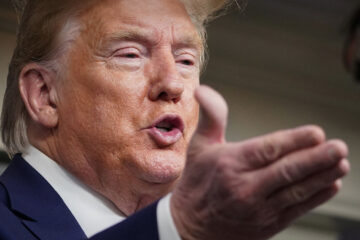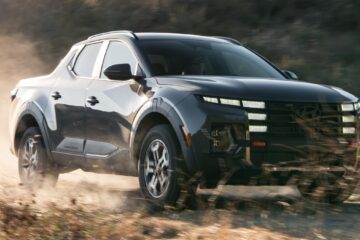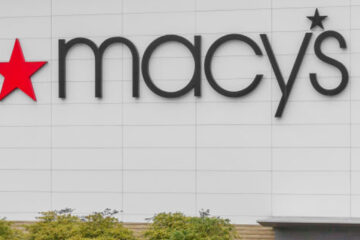It’s another week, and developments related to the friendship between Elon Musk and President-Elect Trump are giving Tesla bulls some outsized confidence. Additionally, new developments have institutions confident about Tesla’s rivals, and Bank of America analysts have positive news about consumer confidence.
President-elect Donald Trump and Elon Musk pose for a photo during UFC 309 at Madison Square Garden on November 16, 2024 in New York City.
The Elon Musk-Trump Honeymoon
Only a few days after the election, reports from all over the media, including The Daily Beast and The New York Times, said that Tesla (TSLA) CEO Elon Musk has been spending quite an abnormal amount of time alongside President-elect Donald Trump’s house at Mar-a-Lago in Florida. Musk has reportedly spent so much of his time there that Kai Trump, the daughter of Donald Trump Jr. and granddaughter of the Don himself, said Elon has earned “uncle status” with the family.
Though it may have sounded like “Uncle” Musk has been taking a vacation from the daily troubles at Tesla, SpaceX, X, and the other companies he is responsible for, Elon has been butting into politically sensitive matters so important that political insiders would foam at the mouth for such an opportunity. As per the Times, he even listened in on phone calls with world leaders like Turkish President Erdogan and Ukrainian President Zelenskyy.
But these developments have paid off for Musk. Musk has been appointed one of two heads of the newly-created Department of Government Efficiency, and his influence has shifted the chess board towards a queen’s gambit that could mean checkmate for Tesla’s competitors.
In a note published on November 12, shortly after Musk was named to the D.O.G.E. role, Tesla Bull and Wedbush analyst Dan Ives called Musk’s overall political maneuverings as a “poker move for the ages,” as it would mean positives for Tesla and what it has lined up.
💰💸 Don’t miss the move: SIGN UP for TheStreet’s FREE Daily newsletter 💰💸
“[Musk’s D.O.G.E. appointment] is another indicator that Musk will have a major seat at the table in the White House, and ultimately, this is a positive for Tesla as Trump will fast track the autonomous and AI initiatives in our view over the next 12 to 18 months that will be a gamechanger to the Tesla story,” Ives wrote. “While Musk will now have another role to balance along with his myriad of other roles at Tesla/SpaceX/xAI, we believe the major benefits for Musk and Tesla far outweigh any negatives […].”
On November 14, it was announced that the Trump transition team was working on eliminating the EV tax credits born out of the Biden Administration’s controversial Inflation Reduction Act. In a note written shortly after, Ives wrote that this move is “NOT a surprise in any way,” noting that he and other Wedbush analysts fully expected such a move to happen.
Ives believes that this move could only help Tesla as competitors, namely its Detroit rivals, struggle to keep up.
“While losing the EV tax credit could also hurt some demand on the margins in the US, this will enable Tesla to further fend off competition from Detroit as pricing/scale/scope is an apples to oranges when compared to the rest of the auto industry once the EV tax credit disappears.”
Ives is not the only analyst with a suddenly positive spin about Musk’s cahoots with the upper echelon of the political sphere.
Related: Top analyst lays out bold bull case for Tesla stock price target
In a note published on November 12, Morgan Stanley analysts led by Adam Jonas predicted that in their most bullish scenario, TSLA shares could balloon up to $500 per share; all thanks to the Musk-Trump friendship.
The MS analysts think that if Teslacouldo successfully implements some of its AI initiatives, such as robotaxis, it would be a payday for everyone watching its stock price.
“Tesla is a car company. That is a fact. However, we also view Tesla as a collection of call options,” Jonas said in his note. “Many of these call options have exercise dates far out into the future. Many may not be exercised at all. Others may be starting to move into the money right now.”
“In our opinion, the winners in autonomy (whether in cars or other form factors) will be those firms who can combine capabilities in data, robotics, energy, AI, manufacturing and downstream infrastructure,” the analysts said. “We believe Teslacano benefits from this theme over time.”
However, Jonas and the rest of the MS analysts lean heavily on the fact that Musk is part of the newfound political upper echelon. Musk leveraging it can accelerate Tesla’s future toward a positive one.
More Business of EVs:
Bentley’s first foray into EVs will debut in 2026Trump’s EPA pick Lee Zeldin is the EV industry’s worst nightmareToyota exec slams “impossible” EV mandate amidst political chaos
“Setting the United States on a course for EV/AV/Robotics/Renewable independence is going to involve government and industrial partnership on a scale some have compared to the Manhattan Project, US Highway Ac,t or the Apollo Missions,” MS said. “Elon Musk’s emergence from a political ‘outsider’ to having a voice in potential policies may, at some level, accelerate Tesla’s journey beyond autos.”
Tesla could already be well on its way there. Late on November 17, Bloomberg reported that Trump transition team members are scouting policy experts that could help sway the National Highway Traffic Safety Administration (NHTSA) into making national-level rules that could regulate self-driving vehicles, a hurdle that could not only benefit Tesla but rivals like Google’s Waymo and General Motors’ Cruise.
In a note published late on November 17, Wedbush’s Dan Ives said that the “emboldened Trump/Musk strategic alliance [is] playing out in real-time,” as it “would be a huge step forward in easing US rules for self-driving cars and be a significant tailwind for Tesla’s autonomous and AI vision heading into 2025.”
“[…] we fully expect under a Trump White House these key initiatives will now get fast tracked as the federal regulatory spiderweb that Musk & Co. have encountered over the past few years around FSD/autonomous clears significantly under a new Trump era.”
A Ford Raptor pickup truck is displayed for sale at a Ford dealership in Glendale, California.
Bank of America says car consumers are coming back.
In September, Bank of America’s consumer survey revealed that consumers were not at all confident about the state of the economy. According to their data, big-ticket spending, including buying new homes, home renovations, home improvements, and new cars, by consumers in the United States during September was down.
They found that the number of people expecting to buy a new car has been on a sequential decline since May, with 37.7% of those surveyed expecting to buy, compared to 38.5% in August 2024 and 39.8% in September 2023.
This sentiment also transferred over to everyday spending, such as at bars, restaurants, and food delivery; 18.67% of those surveyed expected to spend eating and drinking out, and 14.80% said they’d order take-out and delivery food more.
However, November results do have a positive ring.
They found that the number of people expecting to buy a new car has dramatically increased compared to last year. About 43% of those surveyed said they expect to buy a new vehicle within 12 months. These results are a vast improvement from earlier numbers, as only 35% last month said they’ll pursue a new set of wheels, while only 37% last year said so.
Additionally, consumer spending on eating out and delivery has increased significantly since last year, with 19% of people surveyed saying they’ll spend more than last year.
Guests attend the Rivian Reveals All-Electric R2 Midsize SUV event at Rivian South Coast Theater on March 07, 2024 in Laguna Beach, California.
Phillip Faraone/Getty Images
Das Rivian
On November 12, Tesla rival EV automaker Rivian (RIVN) and the VW Group officially announced the next steps of the joint venture they revealed back in July. The joint venture, formally ‘Rivian and Volkswagen Group Technologies,’ has a total deal size of up to $5.8 billion.
Officially, the duo will work on shared technology for future VW models, with the first models to be launched in 2027.
In a statement, Rivian CEO RJ Scaringe noted that the finalization of the duo joint venture “marks an important step forward in helping transition the world to electric vehicles.”
“We’re thrilled to see our technology being integrated in vehicles outside of Rivian, and we’re excited for the future. Rivian will continue to stay focused on creating best-in-class products and services that benefit our customers, helping to drive EV adoption.”
Scaringe isn’t the only person excited about the joint venture.
In a note raising its price target from $10 to $12, Goldman Sachs analyst Mark Delaney maintained its Neutral rating on Rivian stock, arguing that the VW link would highlight the value of its technology platform, particularly on the software and services side.
However, Delaney stopped short of upgrading the stock’s rating based on increased competition, EV demand mood swings, and potential policy risks associated with a Trump presidency.
Related: Veteran fund manager sees world of pain coming for stocks


